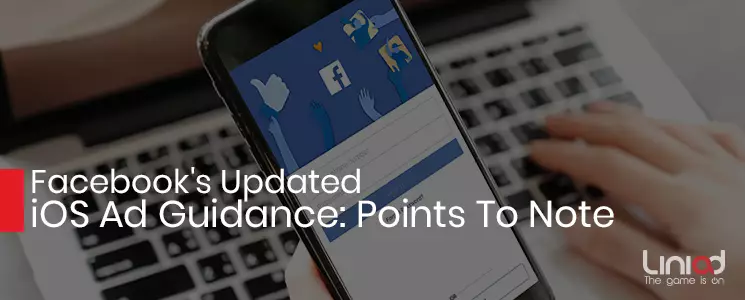Facebook's Updated iOS Ad Guidance: Points To Note

2020 gave a jolt to the ad marketing ecosystem, and we’re not just talking about the after effects of COVID-19. August saw Facebook publishing guidelines on how its ad platform will change to accommodate the upcoming privacy restrictions announced by Apple for its iOS 14 and its App Tracking Transparency (ATT) framework. There has since been back and forth, newspaper ad-bashing, delays and the like, yet it is essential to zoom out and see the bigger picture, to hop on board and adapt accordingly. Here we aim to take a closer look and extract the key points with commentary so that Facebook’s app advertisers can survive beyond these changes.
Ad Creation
Starting off (relatively) simple, there will be key changes made to ad creation policies that need to be noted. Businesses need to stay alert to the fact that auction bidding is now effectively the only available buying option when creating ads for devices using iOS 14 – meaning that we are waving a tearful goodbye to reach and frequency bidding. More information on ad creation limitations can be found directly on Facebook’s own post here.
Exposing ATT Prompt to Users
After having formerly announced that Facebook was abandoning the IDFA (Identifier for Advertisers) more or less completely (based on its original choice to NOT expose the ATT prompt to users), Facebook made a swift u-turn as it quickly realized it was on its way to strict adherence of the ATT privacy guidelines – and not just for app marketing campaigns, but for web ad campaigns from within apps. This cements both the importance and impact of ATT, particularly as Facebook was originally determined to NOT expose the ATT prompt, banishing the IDFA from its analytics platform.
App to Web / App to App Campaigns
In the very same iOS 14 guidance from Facebook, they give an overview of changes for campaigns that link to websites (not apps) from within mobile apps. This in itself is a substantial shift as it tells the ecosystem that app-to-web campaigns are no longer a way to bypass ATT limitations. Facebook goes on to make important points in its guidance for web advertisers; that web attribution will now be in the hands of ‘Aggregated Event Measurement’ meaning that events will only counted at the level of campaign granularity; that web campaigns will be limited to eight conversion events per domain – only the highest priority events triggered by the user will be attributed to the specific campaign and others will basically be ignored. Value Optimized campaigns will now only allow four tracked conversion events for testing purposes; current click-through, view-through attribution windows are falling out of favor.
Conversion Value Management
Facebook updated guidance for app advertisers, announcing that it will work directly with MMPs for conversion value management. It is necessary to note that while this move will probably be welcomed by most app advertisers, it is certain to completely redefine the value of MMPs:
“Facebook is committed to supporting businesses to minimize disruption caused by the Apple iOS 14 changes, and continuing to partner with our Mobile Measurement partners to support third-party measurement. As part of our efforts, we continue to work closely with MMPs to solve for limitations with the SKAdNetwork (SKAN) API conversion bits, which are shared between platforms. This collaboration has led to the formulation of a methodology with MMPs to enable advertisers to uniformly apply measurement across platforms using SKAN conversion bits. We have shared this methodology with all our MMPs so that clients can utilize the Facebook or MMP SDK for ads delivery, optimization, and measurement on Apple’s SKAN.
Indeed, advertisers will have a strong amount of independence when it comes to optimizing Facebook campaigns towards best possible conversion values.
Delayed Reporting
It is important to note that real-time reporting will not be supported and that data may be delayed for up to three days upon the roll out of ATT. For any App install campaigns on iOS 14, conversion events will be reported based on the time they are reported to Facebook by the SKAN API. So we are looking at aggregated results at campaign level and statistical modeling may actually be used to account for results on the ad level.
iOS privacy updates will definitely create ripples within the Facebook advertising world. We may even see some headwinds as we get further into 2021. But like it or not, these regs are here to stay, so it’s best to act swiftly and decisively
The iOS 14 updates bring with them substantial changes for Facebook advertisers. Apple has indeed made sure that these changes will not go unnoticed for both app and web advertisers. Backlash aside, this is really happening – so it really is best to embrace these changes sooner rather than later, and optimize strategies accordingly to avoid being left behind.
